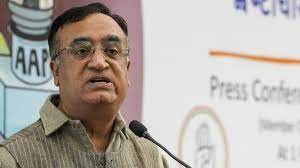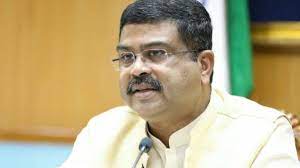“No Money For Salaries Or Electricity Bills,” Cong Alleges Bank Accounts Are Frozen, IT Department Requests ₹210 Cr Recoveries
Ajay Maken’s bank account has been suspended by the Youth Congress.
Congress Treasurer Ajay Maken said that evidence was obtained yesterday suggesting banks were not paying the checks they had written. It was found that the Youth Congress’s financial accounts had been stopped after further inquiry.

Furthermore, the Congress party’s finances had also been taken. The Income Tax agency had wanted Rs 210 crore in recovery from the Congress party and the Youth Congress. Additionally, the crowdfunding funds in their accounts have been blocked.
Maken said that only two weeks before elections, blocking the opposition’s accounts is the same as shutting down democracy. He also claimed that there isn’t any money available right now to pay for other things like staff wages and utility bills. It is anticipated that this scenario would affect not only the Nyay Yatra but all political endeavors.
Supreme Court Discloses Anonymous Donations to Political Parties
Data on anonymous contributions received by Indian political parties between 2017 and 2018 was made public as part of the Supreme Court’s ruling on Thursday, which invalidated the Electoral Bonds Scheme. According to Bar and Bench, the governing Bharatiya Janata Party (BJP) was found to have received the most amount of anonymous contributions, amounting to approximately ₹6,566 crores.
With ₹1,123 crore in contributions, the Indian National Congress came in second place, far less than the BJP. Since 2017, the All India Trinamool Congress has also been granted ₹1,092 crore. The only national party that refused to accept contributions made via electoral bonds was the Communist Party of India (Marxist).
In his separate but concurring opinion, Justice Sanjiv Khanna examined the information that was provided to the Court—primarily by the petitioners—and that was accessible via the Election Commission of India (ECI) website. The statistics supported the concerns voiced before the Constitution Bench, as reported by the media, by showing that a greater percentage of the funds went to the governing party at the Center.
Additionally, the information showed that more than 54% of electoral bonds were sold in denominations of ₹1 crore, ₹10 lakh, and a certain proportion of ₹1 lakh and less. Furthermore, the data shows that for national parties, the percentage of revenue from unidentified sources rose from 66% in the years 2014–15 to 2016–17 to 72% in the years 2018–19 to 2021–22. Overall, between 2018–19 and 2021–2022, the national political parties’ total revenue was made up of 58% of the proceeds from the Electoral Bonds Scheme.







